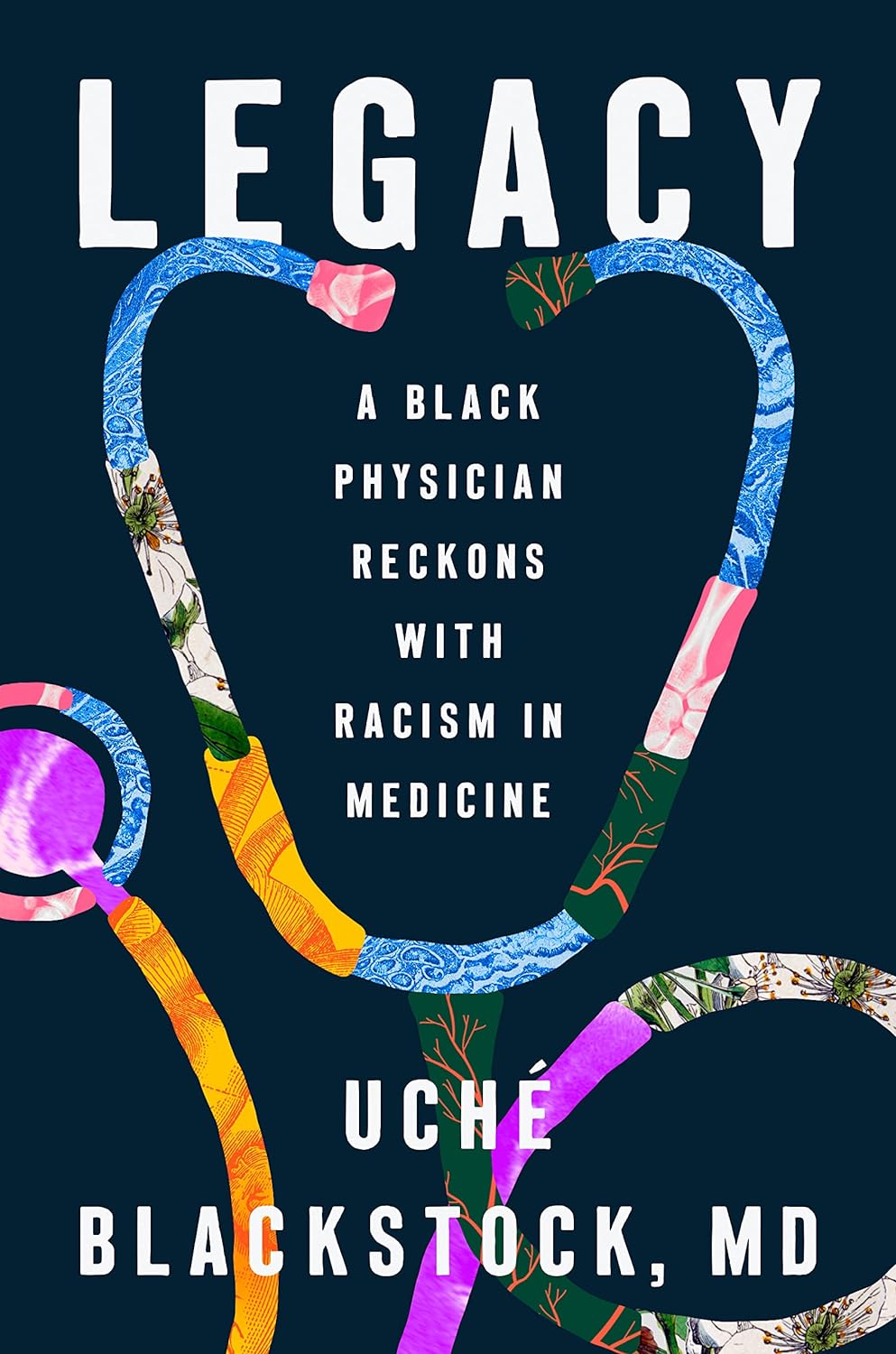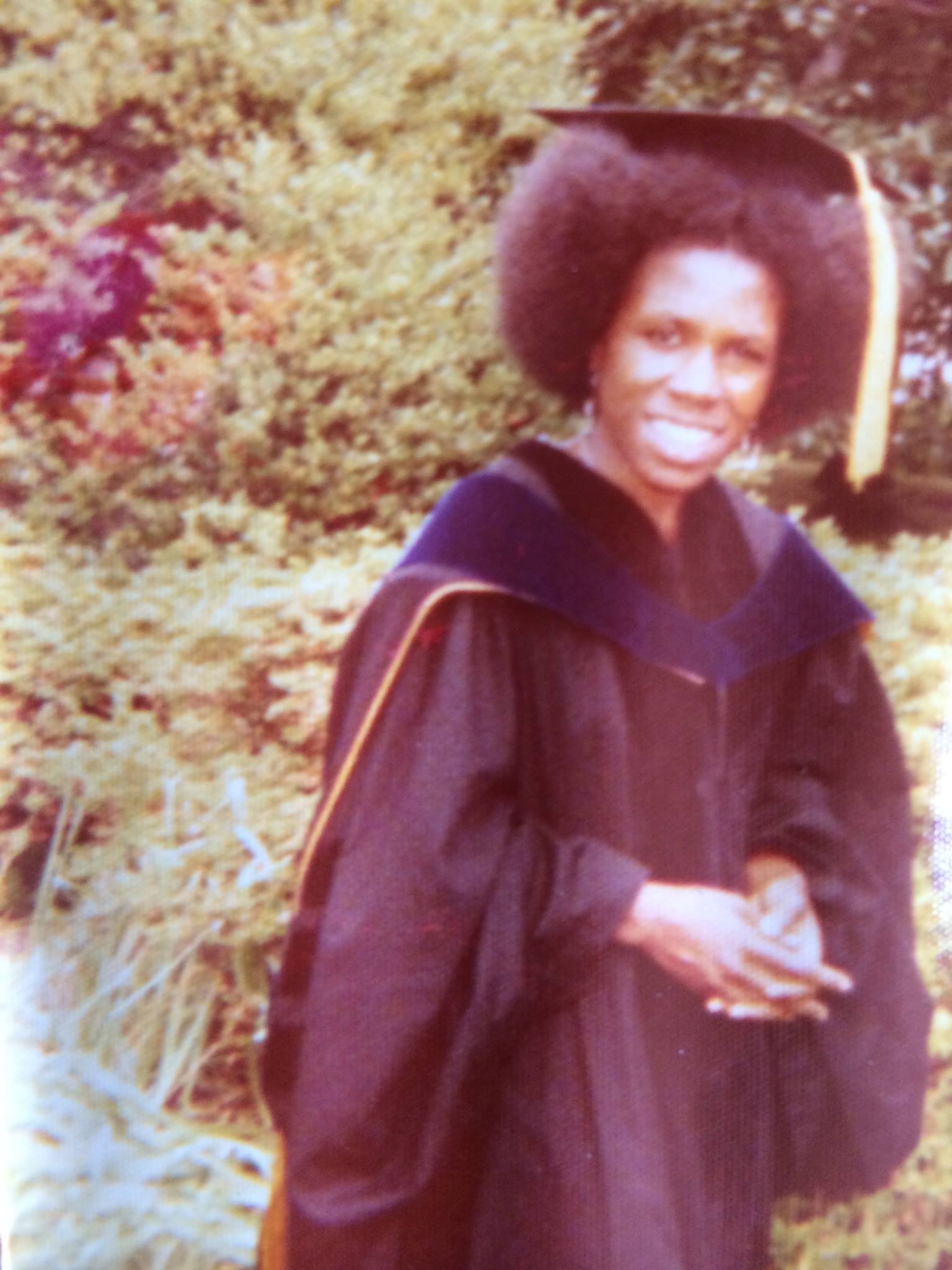Just as Early Learning Nation showcases the ways families, researchers and grassroots nonprofits and organizations are building an early learning nation—one community at a time—our Community Cultivators series highlights how innovators across all sectors build and sustain global communities from the ground up. We hope the series inspires your own early childhood work.
 Uché Blackstock didn’t plan to become a radical physician, but the pain and death she witnessed at Kings County Hospital in Brooklyn radicalized her. After “Jordan,” a young man who looked even younger, died of sickle cell anemia, she contemplated how racism in research, medical education and society has failed to help patients with this painful hereditary disease. His case was far from unique. “My time at Kings County,” Dr. Blackstock writes in her new book Legacy: A Black Physician Reckons with Racism in Medicine, “marked the beginning of my reeducation as a physician.”
Uché Blackstock didn’t plan to become a radical physician, but the pain and death she witnessed at Kings County Hospital in Brooklyn radicalized her. After “Jordan,” a young man who looked even younger, died of sickle cell anemia, she contemplated how racism in research, medical education and society has failed to help patients with this painful hereditary disease. His case was far from unique. “My time at Kings County,” Dr. Blackstock writes in her new book Legacy: A Black Physician Reckons with Racism in Medicine, “marked the beginning of my reeducation as a physician.”
Early Learning Nation magazine recently talked to Dr. Blackstock, founder of Advancing Health Equity, a nonprofit dedicated to redressing the root causes of what she terms “medical apartheid”—which she defines as “a two-tiered system … that contributes to bad outcomes for our most vulnerable patients and ends up costing us more in the long run.”
As with the other Community Cultivators we have featured, her insights apply beyond her own specialty and should resonate with educators of and advocates for young children.
Here’s what we learned from Dr. Blackstock:
The title of her book works on many levels. There are many kinds of legacies, and one is familial: when Dr. Blackstock enrolled in Harvard Medical School, she was following in the footsteps of her mother, who graduated from the august institution in 1976. The elder Dr. Blackstock also worked at Kings County Hospital. Her mother’s accomplishment and determination inspired her, but the quality that stood out most was compassion. In part because she herself had overcome a stutter, she “developed a particular kind of empathy for those who are struggling,” the author says. Twin sister Oni Blackstock also became a physician and founder of a nonprofit Health Justice, which offers training and coaching to promote organizational equity.

Will Uché Blackstock’s two children follow in their mother’s, aunt’s and grandmother’s footsteps? It’s too soon to tell—they’re only 7 and 9. For now, she says, “Parenting is probably my hardest role, and it’s so funny because you don’t even get any training. It’s on-the-job training.”
👉 How Oni and Uché Blackstock, Doctors, Spend Their Sundays (The New York Times)
Medical education has come a long way, and has a long way to go. Simply put, race is a social construct, with no basis in science. There is no blood test to determine someone’s race, and yet Dr. Blackstock’s book chronicles a number of moments in medical school when textbooks and professors alike cited myths about anatomical differences between Black and white patients as if they were objective fact. “I now realize that this so‑called objectivity was anything but,” she writes.
As with any curriculum, she stresses, what gets left out matters as much as what’s included. “So in the past, there was this emphasis on what happens within the exam room, but now we’re acknowledging that when you’re talking to your patient, everyone else in their community is in the room with you.” Their family, their job, their living conditions, their education all contribute to health and disease. Dr. Blackstock believes all medical students should study public health in order to understand how their patients fit into community and population factors.
👉This Is a Pandemic of Inequality (Medscape)
Trust is a matter of life and death. Having a doctor who looks like you—or who at least cares about who you are—can mean the difference between living a full life and dying prematurely. Dr. Blackstock cites a 2020 study that finds mortality rates sharply lower for Black newborns cared for by Black physicians.”
More broadly, Legacy details the hazards of “institutional untrustworthiness,” which occurs when major systemic and minor interpersonal failures accumulate to the point that patients justifiably feel that the institutions designed to help them are not worth the risk. The book argues that it is up to these institutions to win back the trust of the Black community, and Dr. Blackstock’s prescription includes listening and understanding. “The pandemic,” she says, “revealed all these deep fissures within multiple systems, especially our health care system.” To counter the health risks posed by racist laws and norms, the medical establishment has an obligation to improve its capacity to see these factors clearly and to respond forcefully and empathetically.
👉Two Words No Parent of a Sick Child Should Have to Hear: ‘At Capacity’ (The Washington Post)
Physicians can be advocates. “Health is not just about individual choices,” Dr. Blackstock notes. Doctors can recite advice about eating healthy and getting exercise until they’re blue in the face, but these behavioral changes constitute only 20% of what makes someone healthy. The other 80% comprises systemic factors beyond the individual’s control, such as the quality of the air, the affordability of housing, the availability of healthy food choices.
What good is writing a prescription for a patient when there aren’t any pharmacies in the neighborhood? What does it mean to treat bullet wounds without confronting the ubiquity of firearms or the economic factors that lead to gun violence?
Physicians need to recognize their roles as advocates. When Dr. Blackstock writes op-eds or testifies before Congress, she’s drawing upon her medical education to improve the health of people she will never meet in person. “I’m not saying physicians need to save the world,” she says, “but we need a system where we do more than just prescribe medications and tell them not to drink and smoke.”
👉 Black Women Fear Death During and Post-Pregnancy: It Isn’t Paranoia
The emergency room is in a state of emergency. A dysfunctional and chronically underfunded health care system places an unsustainable burden on the site that should be the last resort for patients. Legacy lays it on the line, calling the American emergency room “the place where the United States’ social problems come home to roost.”
Dr. Blackstock says she originally chose emergency medicine as a specialty because it meant being able to serve everyone who walked through (or was rolled through) the doors. “I knew I’d be able to take care of all comers, regardless of socioeconomic status,” she says. “But I didn’t recognize that so many people used the emergency department for primary care services.” Investments in social services, public health and primary prevention—as well as comprehensive health coverage—would eliminate many or even most emergency room visits, she says, allowing ERs to function better for the cases they were intended to serve.
Many of the issues Dr. Blackstock highlights in Legacy boil down to the social determinants of health. The book, she says, was conceived as way of helping readers connect the dots between the world around us and the state and fate of our bodies.

Mark Swartz
Mark Swartz writes about efforts to improve early care and education as well as developments in the U.S. care economy. He lives in Maryland.


